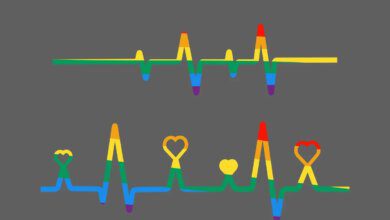
How do you recover from divorce? What to do and what to avoid
Controversial or not, divorce is not an easy stage. Most people who end their marriage find it difficult to start a new life. What can you do to find the strength to start over?
Experts say feelings such as rejection, anger or deep pain that accompany divorce can get out of hand, and it's important to pay attention to how you feel and ask for help. But there is also a lighter version in which you feel relief, freedom and hope after marriage.
Psychologists warn that in the case of divorce, as in the case of any loss, there may be stages of emotional distress that characterize the moments people face when they end a chapter and want to start over. Therefore, expectations should be realistic and take into account the fact that you will go through periods of adaptation, active recovery and restructuring of your life.
The content of the article
Get rid of negative emotions!
Regardless of the nature of the feelings you experience, allow yourself to experience them without guilt or remorse. By investigating these conditions, you will recover more thoroughly and this will show up in the long term. That's why psychologists say it's important to check in with your own mood rather than assuming there's a right feeling you should be feeling but not aligning with it.
You also need to give yourself time to release pent-up feelings, which you can do after awareness and as a necessary step to clear or heal negative emotions that you might otherwise project onto other partners or that, not released, I may block you.
Psychologists recommend working with a therapist because he or she can be an impartial listener offering guidance, rather than someone you know who may react emotionally or who can give you ready-made solutions but does not take into account your specific situation or represent you. or.
Working with a therapist can be a great support, and you can get practical advice from friends and others who have gone through this phase on how to manage money or look after children.
Take better care of yourself
Emotional regulation is a skill that we practice and practice throughout our lives. This will help you learn to cope with strong emotions by focusing on self-care. Initially, most people going through a divorce are in survival mode and are not focused on their own well-being. Therefore, you must consciously choose enjoyable activities and shift your attention to self-care. According to psychologists, this approach reduces your vulnerability to emotional distress, and you can cope better when you're overwhelmed by painful emotions.
Don't rush into a new relationship right away
Many people who go through a divorce jump into new relationships too quickly. They are afraid of being alone, or they are afraid that they will never fall in love again, or they think that this will make it easier for them to heal. But this behavior is a trap because you need time to heal. Otherwise, you could hurt others or come out of this new relationship even more resentful, or it could be the completely wrong choice for you. Psychologists say that before entering into a new relationship, you must learn the lessons of previous relationships. So, you can give yourself the green light for a new relationship if you can clearly and painlessly answer the following questions about your previous relationships: “what worked, what didn’t work?”, “what behavioral patterns do you have and could you repeat?", "Do you trust yourself?", "Can you trust someone new?".
Psychologically, after a divorce, you change and will change, but it is important that this change occurs without further trauma.
Develop your optimism
Positive thinking is always useful, especially during times of crisis. Look for support groups on social media and join those where divorced people are active. There you will find support and understanding from those who are going through the same stages as you, you can receive and give confirmation, you can give and receive support in difficult times.
Positive thinking will help you maintain hope, and even if you feel that you are not where you deserve to be or that your life is far from what you want, you will eventually overcome the difficulties of this stage.
Take care of your health!
Eat healthy, get as much sleep as you need, and don't escape reality by drinking alcohol or other substances that can be addictive or compromise your health. Adopt a healthy lifestyle with regular exercise, and if you have anxious mood swings and your doctor has prescribed the pills, take them as directed. Creating a new routine that includes things that make you feel good will improve your self-esteem, confidence and mental well-being. Exercise is also known to increase endorphin levels in the body, which helps maintain good health.















